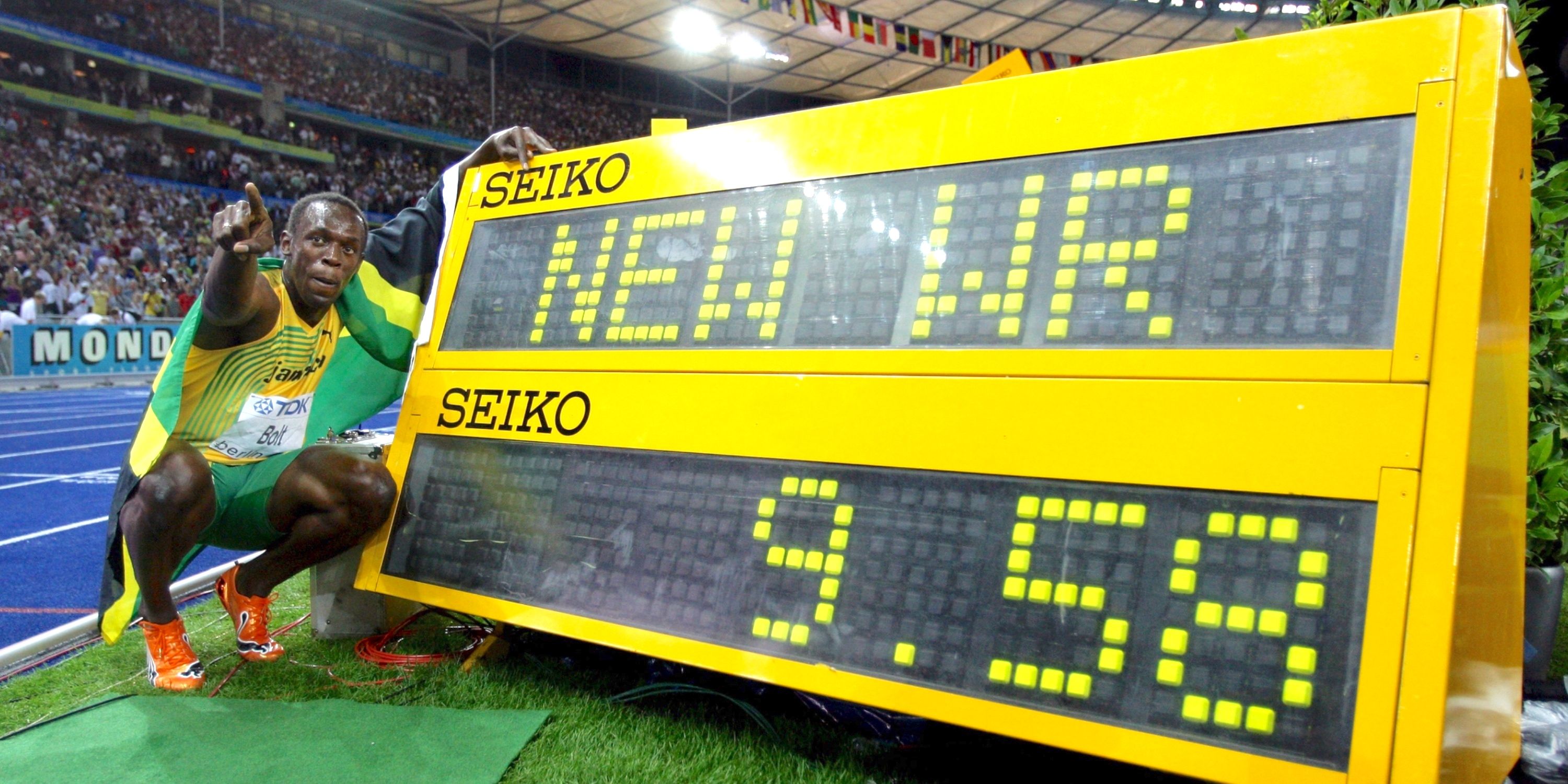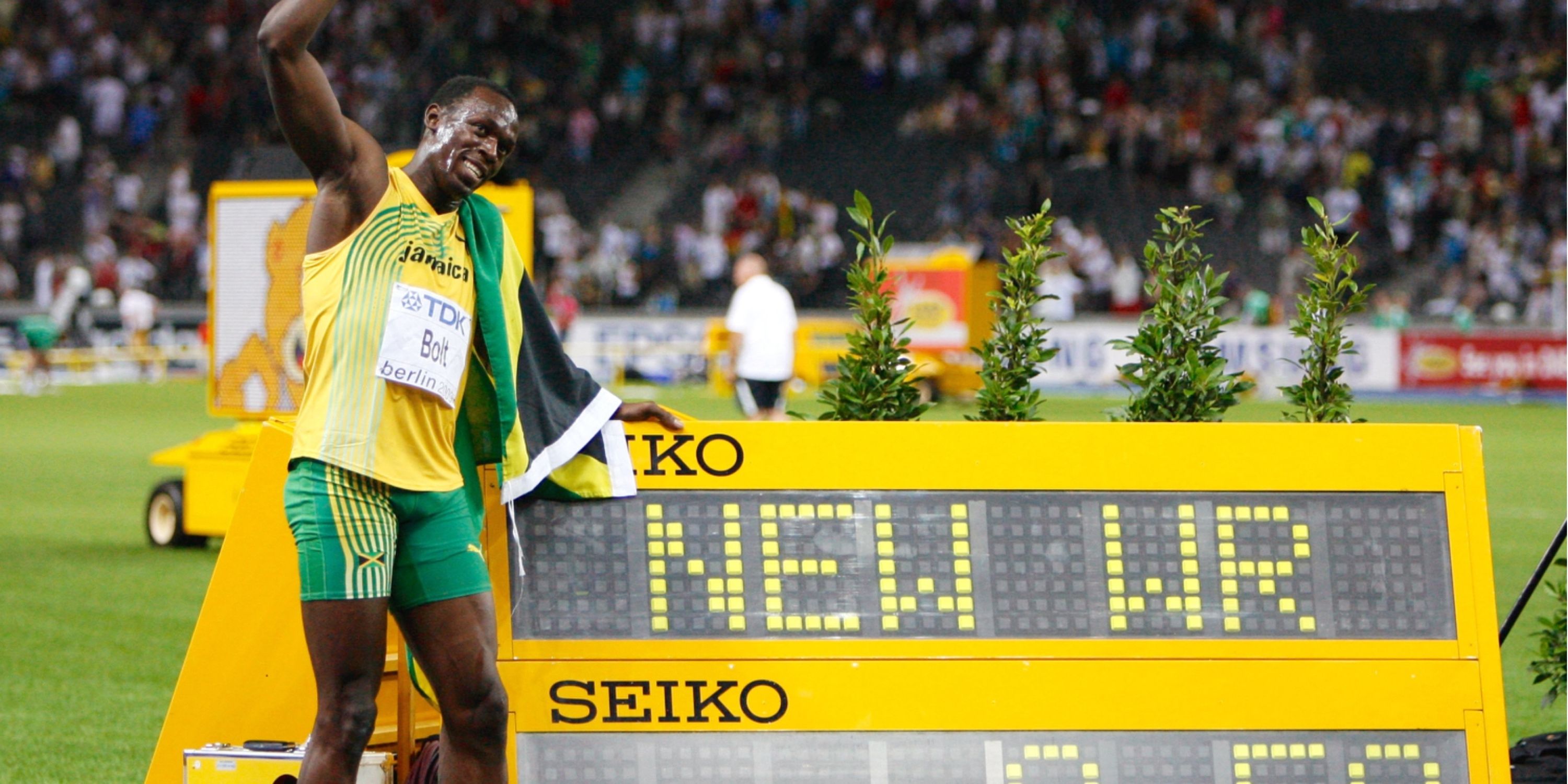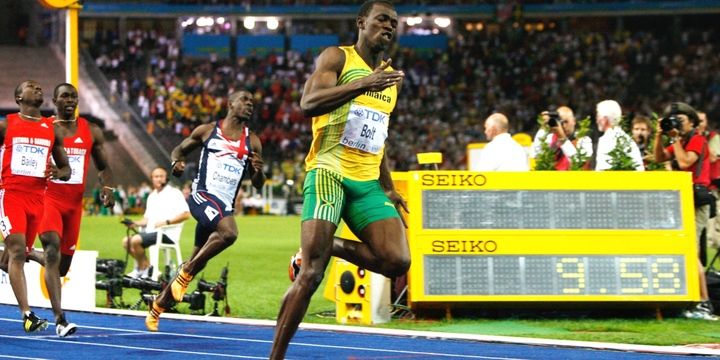Bolt’s insane record of 9.58 seconds has stood for 15 years – and scientists have revealed if it will ever be broken

Usain Bolt famously won the gold medal at the Beijing Olympics with an exceptional time of just 9.69 seconds, iconically jogging to the line after obliterating the field in the early stages of the race. A year on from that, the Jamaican wasn’t quite finished with business, as he broke the world record with a blisteringly-quick 9.58-second time in Berlin, earning him the nickname ‘Lightning Bolt.’
So far, 15 years on from that historic day, nobody has managed to come remotely close to that time, with Bolt himself not even being able to replicate anything like that, setting an obscene record while finally being at full tilt for the full race.
It is perhaps unsurprising to learn that no athlete has come close to breaking that record. Noah Lyles’ winning time of 9.79 seconds in the 100m final of the Paris 2024 Olympics stands as his personal best but is still 0.16 seconds behind Bolt’s winning time at the 2012 London Olympics. Which begs the question: Will the record ever be broken again?
Study Reveals if Usain Bolt’s Record Can be Broken
Sport Biomechanics study conducted to see if sub-nine second time will be achieved

With 35.4 million viewers tuning into the event at this summer’s Games, the 100m is among the most watched events at any athletics competition or the Olympic Games and is over in the blink of an eye.
It took until the 1968 Olympics in Mexico City to see the first below 10 seconds 100m race thanks to Jim Hines when he clocked 9.95 seconds. So, clearly, the times are generally getting quicker and quicker, with sprinters going to places the world never thought they would see.
However, while a sub-nine second race seems beyond the realms of possibility, a scientific study by Polly McGuigan and Aki Salo conducted at the University of Bath in 2022 theorised that Bolt’s record could be broken in the future, and they believe that a 100m time of under nine seconds may be possible to achieve.
But they caveat this claim by stating that a mixture of genetics and training would be needed – meaning that time would not be even remotely possible for a number of generations. Their findings read: “A combination of genetics and training would need to produce bum, thigh and calf muscles which are a little bit stronger and faster than the current best sprinters.
“A muscle with a high proportion of large, fast twitch muscle fibres will be able to generate larger amounts of force more quickly than a muscle with a lower proportion.
“It’s safe to say that someone will break the nine second barrier – not necessarily in our lifetime, but it will happen one day.”
Others Dispute It Can Ever Be Done
The science behind Bolt’s speed is remarkable

Other researchers, such as Peter Weyand and Sam Allen, believe that, because of genetics, Bolt’s record speeds might never be matched, and the science behind his extraordinary times make for an intriguing read.
The latter says the fastest sprinters seem to spend about 60% of the time in the air, with no foot on the ground, while for amateur athletes it’s more like 50%. But even among top sprinters, Bolt stands out, and this is partly because of his height.
“Bolt is a genetic freak because being 6ft 5ins tall means he shouldn’t be able to accelerate at the speed he does given the length of his legs,” former Great Britain sprinter Craig Pickering said.
“At the beginning of a race you want to take short steps in order to accelerate, but because he’s so tall he can’t do that. But then when he reaches top speed he has a massive advantage over everyone else because he’s taking far fewer steps.”
Bolt typically completes a 100m race in about 41 steps – three or four fewer than his rivals. Although good training can help all budding athletes be faster than they are, says Sam Allen, “the best sprinters will always benefit from having a huge amount of natural ability”.





